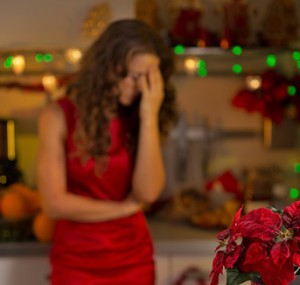 Despite the cheerfulness surrounding the holiday season, it can also be a difficult time for many people, bringing with it a variety of mental and emotional challenges. Some people may associate the season with a significant loss of a loved one, while others may become overwhelmed by the typical demands and expectations that come with this part of the year.
Despite the cheerfulness surrounding the holiday season, it can also be a difficult time for many people, bringing with it a variety of mental and emotional challenges. Some people may associate the season with a significant loss of a loved one, while others may become overwhelmed by the typical demands and expectations that come with this part of the year.
Whatever these challenges may look like for you, it’s essential to have healthy tools and coping mechanisms to help you overcome them while getting as much joy as possible out of the holiday season. A few helpful tips include:
Spending time with other people: A large number of people tend to feel lonely during the holidays. Some people may be distant from loved ones or may have lost multiple people they’d typically spend this time with. Whatever your circumstances may be, it can be helpful to spend time with any loved ones who are available, whether they’re friends, family, or any other important people in your life. If nothing else, it may help to find a local community, support group, club, or meetup to engage with during this time.
Giving yourself space as needed: While many people may feel lonely during the holiday season, others may encounter the opposite problem: feeling overwhelmed by gatherings, events, and expectations from the people around them. It’s okay to recognize and be up front about what you’re able to handle at this point in time, and to say no to anything that you feel would be too much for you.
Recognizing when you need help: It may not be easy for everyone to identify when they need mental help, or to make time to get that help, even if they recognize that it’s needed. However, your mental health should be a priority at all times, and you should get help from a licensed, qualified therapist when issues such as stress, anxiety, or depression start to overwhelm you.
If you need help from a psychiatrist during this holiday season, you can schedule an appointment at Flushing Hospital Medical Center’s Outpatient Psychiatric Clinic by calling (718) 670-5562.
All content of this newsletter is intended for general information purposes only and is not intended or implied to be a substitute for professional medical advice, diagnosis or treatment. Please consult a medical professional before adopting any of the suggestions on this page. You must never disregard professional medical advice or delay seeking medical treatment based upon any content of this newsletter. PROMPTLY CONSULT YOUR PHYSICIAN OR CALL 911 IF YOU BELIEVE YOU HAVE A MEDICAL EMERGENCY.


